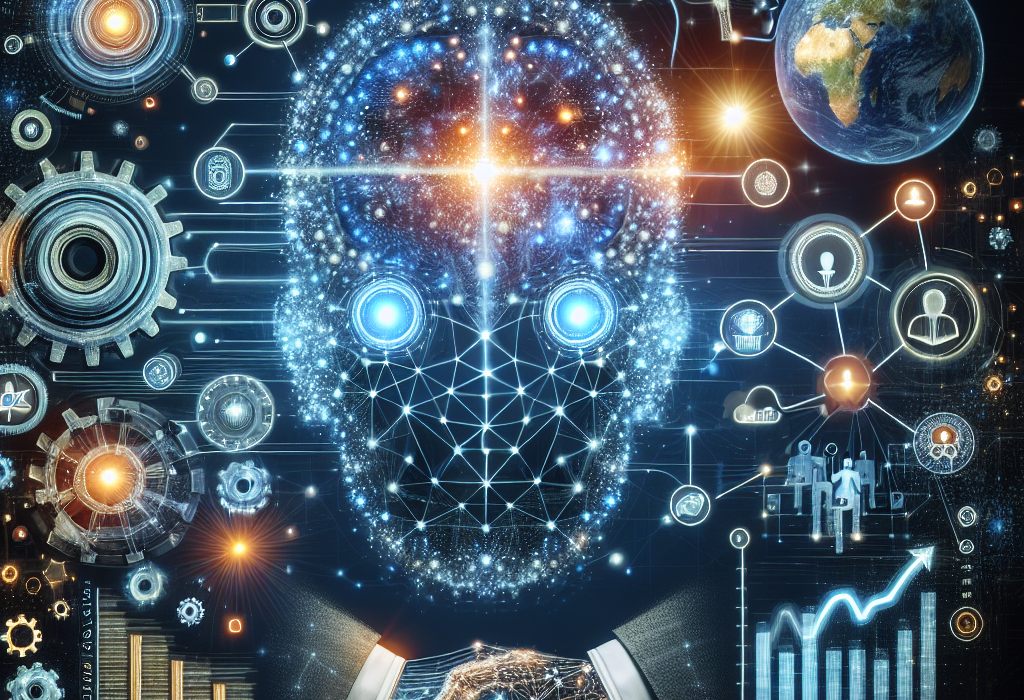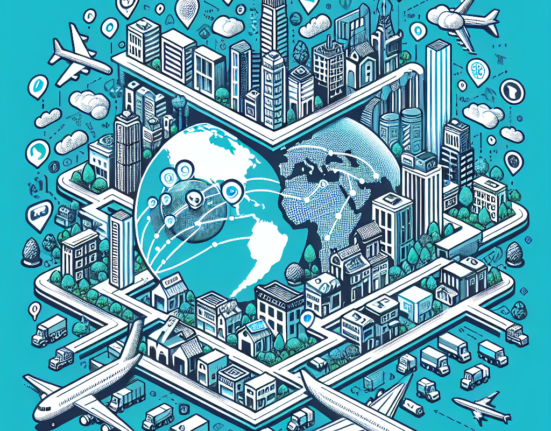Artificial Intelligence (AI) is no longer a concept confined to science fiction novels or futuristic tech expos. It has permeated every facet of modern life, including the realm of business. As companies navigate through the complexities of digital transformation, AI emerges as a pivotal force, instigating profound changes in how businesses operate. This article delves into the ways AI is revolutionizing business operations and why it’s indispensable for future growth.
Enhanced Decision-Making
AI’s ability to process vast amounts of data at unprecedented speeds equips businesses with actionable insights that were previously unattainable. Algorithms and machine learning models sift through complex datasets, identifying patterns and trends that can inform strategic decision-making. From market analysis to customer behavior prediction, AI enables data-driven decisions that can lead to enhanced efficiency, reduced costs, and increased profitability.
Automation of Routine Tasks
One of the most immediate and visible benefits of AI is the automation of repetitive tasks. Robotic Process Automation (RPA) leverages AI to handle mundane and time-consuming tasks such as data entry, invoicing, and payroll processing. This not only frees up human resources to focus on more strategic and creative activities but also minimizes errors, ensuring higher accuracy and consistency in operations.
Personalized Customer Experience
In today’s highly competitive market, providing a personalized customer experience can be a significant differentiator for businesses. AI-powered tools like chatbots and recommendation engines analyze user data to offer tailored experiences, from product suggestions to customized marketing messages. By understanding individual customer preferences and behaviors, businesses can enhance engagement and loyalty, driving customer retention and lifetime value.
Predictive Maintenance
For industries reliant on machinery and equipment, AI-driven predictive maintenance is a game-changer. Analytical models can predict when a machine is likely to fail or require maintenance, based on historical and real-time data. This prevents costly downtime and extends the lifespan of equipment, offering substantial cost savings. Predictive maintenance is particularly impactful in sectors such as manufacturing, logistics, and energy.
Supply Chain Optimization
AI is transforming supply chain management by providing real-time visibility and insights. Predictive analytics can forecast demand with high accuracy, enabling businesses to optimize inventory levels and reduce wastage. AI also facilitates dynamic pricing strategies and efficient route planning for logistics, ensuring that products reach consumers faster and at lower costs.
Enhanced Cybersecurity
As cyber threats become more sophisticated, conventional security measures often fall short. AI enhances cybersecurity by continually monitoring network traffic, identifying anomalies, and responding to potential threats in real-time. Machine learning algorithms evolve with each new attack, fortifying defenses and reducing the risk of data breaches. Businesses can protect sensitive information better and ensure compliance with regulatory standards.
Innovation and Product Development
AI is a catalyst for innovation, driving new product development and improvement. By analyzing market trends, customer feedback, and competition, AI can identify gaps and opportunities for new offerings. Furthermore, AI tools can model and simulate different scenarios, accelerating the ideation and testing phases of product development. Companies can bring novel and optimized products to market more efficiently, maintaining a competitive edge.
Human Resource Management
AI is also revolutionizing human resource management with intelligent recruitment platforms that streamline candidate sourcing, screening, and selection processes. These platforms use natural language processing (NLP) and machine learning to match candidates with job profiles, reducing hiring time and improving fit. Moreover, AI-driven analytics provide insights into employee performance and engagement, helping organizations retain top talent and foster a productive workplace.
Conclusion
The transformative power of artificial intelligence in business operations cannot be overstated. From enhancing decision-making to automating repetitive tasks, from personalizing customer experiences to fortifying cybersecurity, AI is at the forefront of driving efficiency, innovation, and growth. As businesses continue to integrate AI into their operations, those that embrace this technological revolution will be better positioned to thrive in an increasingly complex and competitive landscape. The future of business is undeniably AI-driven, and the time to adapt is now.
















Leave feedback about this
You must be logged in to post a comment.